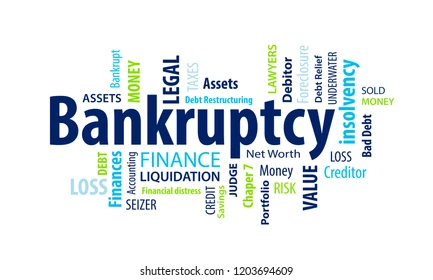Bankruptcy can be a challenging and complex process for small business owners. Understanding the impact of bankruptcy and seeking appropriate legal guidance is crucial to navigating this difficult time. This article provides an overview of the implications of bankruptcy for small businesses and offers advice on how to obtain legal support to manage the situation effectively.
Understanding Bankruptcy for Small Businesses
Bankruptcy is a legal process that allows individuals and businesses to address their financial difficulties by reorganizing or discharging their debts. For small business owners, bankruptcy can provide relief from overwhelming debt and offer a fresh start. However, the impact of bankruptcy on a small business can be significant, affecting everything from daily operations to long-term viability.
Types of Bankruptcy for Small Businesses
Small businesses can file for different types of bankruptcy, each with its own implications:
- Chapter 7 Bankruptcy: This type of bankruptcy involves liquidating the business’s assets to pay off creditors. It is often used when a business is unable to continue operating and needs to close down. Chapter 7 can provide a clean slate but may result in the loss of business assets.
- Chapter 11 Bankruptcy: This type of bankruptcy is designed for businesses that want to continue operating while reorganizing their debts. Chapter 11 allows a business to propose a plan to restructure its debts and improve its financial situation. It is a more complex process but can help businesses stay afloat.
- Chapter 13 Bankruptcy: While typically used by individuals, Chapter 13 may be an option for small business owners who operate as sole proprietors. It involves creating a repayment plan to pay off debts over time, usually three to five years.
The Impact of Bankruptcy on Small Businesses
Financial Implications
Bankruptcy can have several financial consequences for small businesses:
- Asset Liquidation: In Chapter 7 bankruptcy, the business’s assets may be sold to pay creditors. This can include inventory, equipment, and real estate, which can disrupt operations and reduce the value of the business.
- Debt Reorganization: Chapter 11 bankruptcy allows businesses to restructure their debts, but this process can be costly and time-consuming. It often requires significant legal and financial expertise to develop and implement a successful reorganization plan.
- Credit Impact: Bankruptcy can significantly impact a business’s credit rating. This can make it challenging to secure financing or establish credit with suppliers in the future.
Operational Challenges
Bankruptcy can also affect the day-to-day operations of a small business:
- Business Continuity: In Chapter 11 bankruptcy, the business may continue to operate, but it must adhere to strict court-approved plans and monitor its financial activities closely. This can place additional strain on management and employees.
- Customer and Supplier Relationships: Bankruptcy can impact relationships with customers and suppliers. Customers may be concerned about the business’s ability to fulfill orders, while suppliers may be hesitant to extend credit or continue doing business.
- Employee Morale: The bankruptcy process can create uncertainty and stress for employees. It’s important for business owners to communicate openly with their staff and provide reassurance during this challenging time.
Seeking Legal Guidance
Navigating bankruptcy can be complex, and obtaining legal advice is crucial for small business owners. Here are some steps to consider when seeking legal guidance:
Finding the Right Legal Support
When looking for legal support, it’s important to find professionals who specialize in bankruptcy law. For business owners in Pennsylvania, you might want to consider consulting with lawyers in Wilkes Barre PA. They can provide valuable insights into the bankruptcy process and help develop strategies to address financial challenges.
Working with a Bankruptcy Attorney
A bankruptcy attorney can assist small business owners in several ways:
- Assessment of Financial Situation: An attorney can evaluate the business’s financial status and recommend the most appropriate type of bankruptcy filing.
- Preparation of Bankruptcy Filing: Filing for bankruptcy involves extensive paperwork and legal requirements. An attorney can ensure that all necessary documents are prepared accurately and submitted on time.
- Representation in Court: If the bankruptcy process involves court proceedings, an attorney can represent the business and advocate on its behalf.
- Negotiation with Creditors: Attorneys can help negotiate with creditors to reach agreements that may be more favorable to the business.
Conclusion
Bankruptcy can have significant implications for small businesses, affecting their financial health, operations, and relationships with stakeholders. However, with the right legal guidance and a clear understanding of the process, business owners can navigate these challenges and work towards a successful resolution.
If you’re facing financial difficulties and considering bankruptcy, it’s essential to seek professional legal advice. By working with experienced attorneys, you can make informed decisions and develop strategies to manage your business’s financial future effectively.
